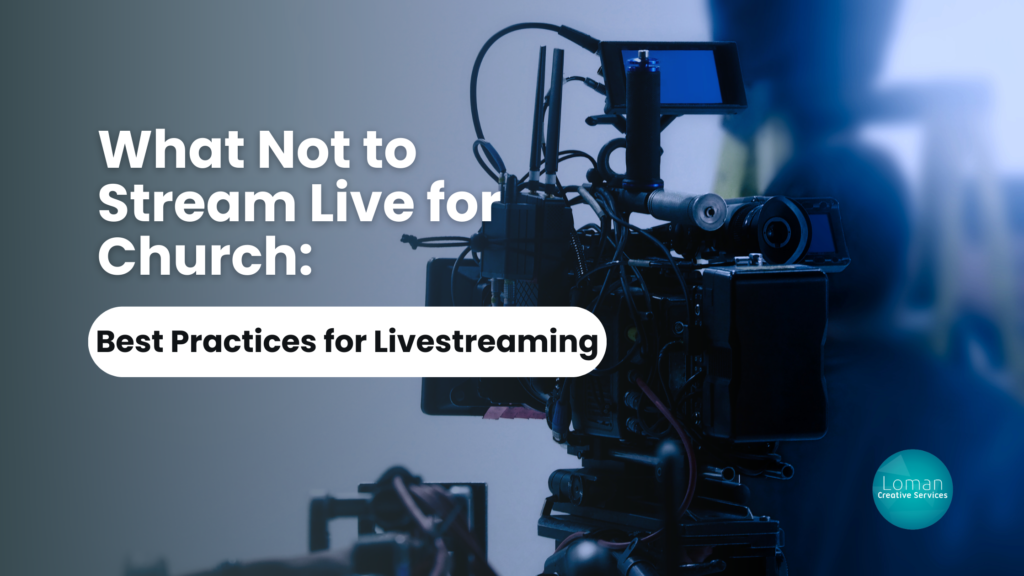Livestreaming has become an essential tool for churches to connect with members, reach new audiences, and share the message of the Gospel. However, not everything that happens within the church walls is suitable for public broadcast. While technology allows us to share powerful moments with the world, it’s crucial to exercise discernment about what should remain private. Here are some best practices and considerations for church livestreaming.
What Not to Stream
- Private Deliverance Moments
Deliverance is a deeply personal and spiritual experience that often involves sensitive issues. Broadcasting such moments can unintentionally violate the privacy of individuals and distract from the sacredness of the process. These moments are best kept within the church family and handled with care. - Sensitive Testimonies
While testimonies can be powerful tools for ministry, some stories may include details that are too personal or could unintentionally harm others involved. Always seek permission from the individual sharing their testimony and assess whether the content is appropriate for a public audience. - Children’s Ministry Without Consent
Children’s activities, such as Sunday school or youth group events, are precious moments within the church. However, livestreaming children without parental consent can raise serious privacy concerns. It’s best to focus on general updates or highlights rather than live footage. - Conflict or Emotional Outbursts
Every church has its moments of tension or conflict, whether it’s during a business meeting or an emotionally charged service. Such moments should never be streamed, as they can create misunderstandings or damage the church’s reputation. - Unpolished Worship Practices
While worship is at the heart of every service, not all aspects of it translate well to a livestream. Rehearsals, sound checks, or moments of technical difficulty are better left behind the scenes to ensure that what is shared reflects the excellence your church strives for.
Best Practices for Church Livestreaming
- Be Selective About What You Share
Not everything needs to be broadcasted. Consider whether the content is edifying, inclusive, and appropriate for a broader audience. Services, sermons, and uplifting worship moments are usually great choices for livestreaming. - Seek Consent
Before sharing anything live, ensure you have the consent of anyone who will appear on camera. This is especially important for personal testimonies, baptisms, or close-up shots during the service. - Focus on Public Moments
Keep the livestream centered on the aspects of the service that are intended to reach and inspire a broader audience, such as the sermon, scripture readings, and worship music. Private moments, such as pastoral counseling or prayer requests, should remain within the church. - Use Delayed Streaming When Necessary
Consider recording sensitive services or portions of the service instead of livestreaming them. This allows time to edit content and ensure it’s appropriate for a wider audience before sharing. - Train Your Team
Equip your media team with training on livestream etiquette, privacy considerations, and technical skills. A well-prepared team can make thoughtful decisions in the moment and ensure that livestreams run smoothly. Book us for training.
Moments That Are Best Kept Within the Church
Some events and moments are sacred and should be cherished among the church family. Private prayer meetings, pastoral counseling, and moments of deep personal reflection are not meant for public consumption. Keeping these moments within the church allows members to feel safe and supported without fear of judgment or exposure.
Livestreaming is a powerful tool, but with great power comes great responsibility. By using discernment and respecting the privacy of individuals, churches can create a positive and uplifting online presence while preserving the sacredness of intimate moments. Always strive to honor God and the people He has entrusted to your care, both in-person and online.

